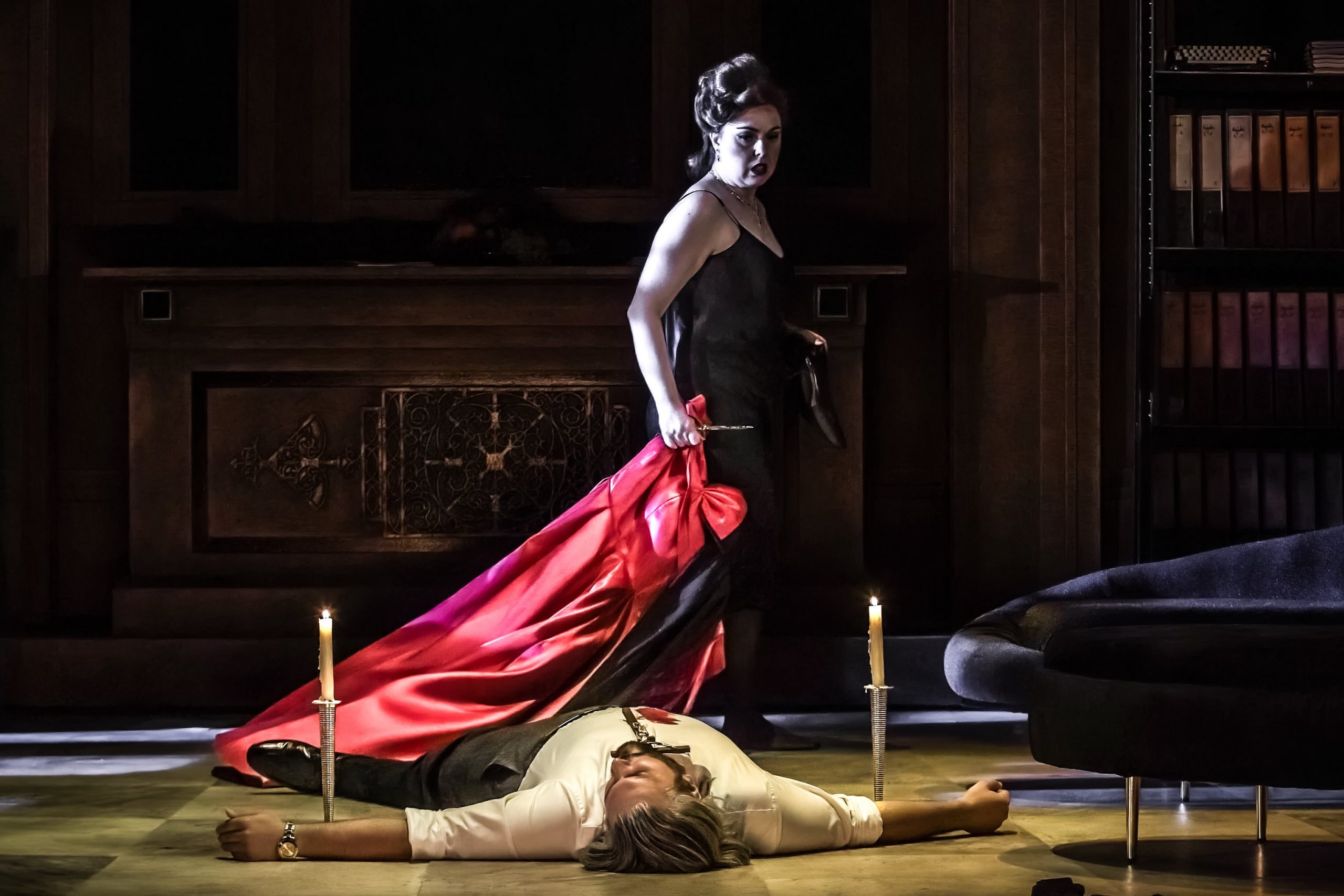
****
Tosca has always been a dark story of violence and cruelty, that crushes love and hope. The famous ending, here with the jealous singer falling backwards from the battlements of Castel Sant’Angelo with her chilling final words, is one of vengeance and hate not of love. That love has been ripped out of her first by the rapist Scarpia shattering her innocence and religious piety with his disgusting sex for freedom offer, then his henchman firing a single bullet into her lover’s head.
The bullet to the head is more effective than the usual stylised firing squads and Tosca, still holding the knife she has stabbed Scarpia with, lashes out at his thugs as they try to capture her. It is all full-bodied stuff and so too is the excellent singing from both of the lovers.
In the title role, making a vivacious Grange Festival debut, Francesca Tiburzi sings as much with her eyes as her voice. Those dark eyes flash with jealousy and fear, ardour and hatred. If it were theatre, it may all be a little melodramatic, but this is Puccini’s fiery diva, and it works perfectly. The voice is rich and powerful which, in the small Grange Festival auditorium, makes for quiet an experience. Similarly, Andrés Presno as her lover Cavaradossi, is also a voice to be reckoned with. His top notes are impressive and strength awesome yet when we reach the gorgeous “E lucevan le stelle” he brings out the pathos and beauty of the tragic aria.
This is not a traditional staging, we are somewhere in Rome possibly in the 1950s with anarchists rather than Napoleonic revolutionaries, challenging the corrupt monarchical state. That is of course seen in the costumes and staging (nice touch with the postcards for sale on a stand in the church). But it is also in that dealing with the ever-present fear of a security service operating with its own rules. It is fitting that
Andrew Manea’s Scarpia is not a pantomime baddy but a cool and confident, sinister but not creepy. His baritone is secure although the direction may account for an element of vocal menace.
The first two acts are clean and effective thanks to Christopher Luscombe’s direction and Simon Higlett’s sets. In the finale the over busy set for Castel Sant’Angelo with too many comings and goings by those henchmen and gaoler, detract from the heart chilling final minutes to the horrific denouement.

Francesca Tiburzi (Tosca), Andrés Presno (Cavaradossi)
The ugliness and violence of the opera that so starkly contrasts with the doomed love of Tosca and Cavaradossi, is captured in the driven conducting of the Bournemouth Symphony Orchestra by Francesco Cilluffo. The luscious soaring music for the love duets were carefully contrasted with the foot-down racing pace of the drama when required.
Well done the Festival Children’s Chorus, who were a joy and the smaller roles of the Sacristan and Angelotti were sharply drawn by Darren Jeffrey and Dan D’Souza.
The requirements of a festival mean there has to be a long supper/ picnic interval, but it did take away from the pace of the action, particularly with a plot that flows along rapidly almost in real time. However, I did feel a little dampness of the eye during the lovers’ final duet.
Andrew Manea (Scarpia), Francesca Tiburzi (Tosca)

Andrew Manea (Scarpia), Francesca Tiburzi (Tosca)

Dan D’Souza (Angelotti)

Darren Jeffrey (Sacristan) and the Festival Children’s Chorus
Until July 5
Images: Craig Fuller